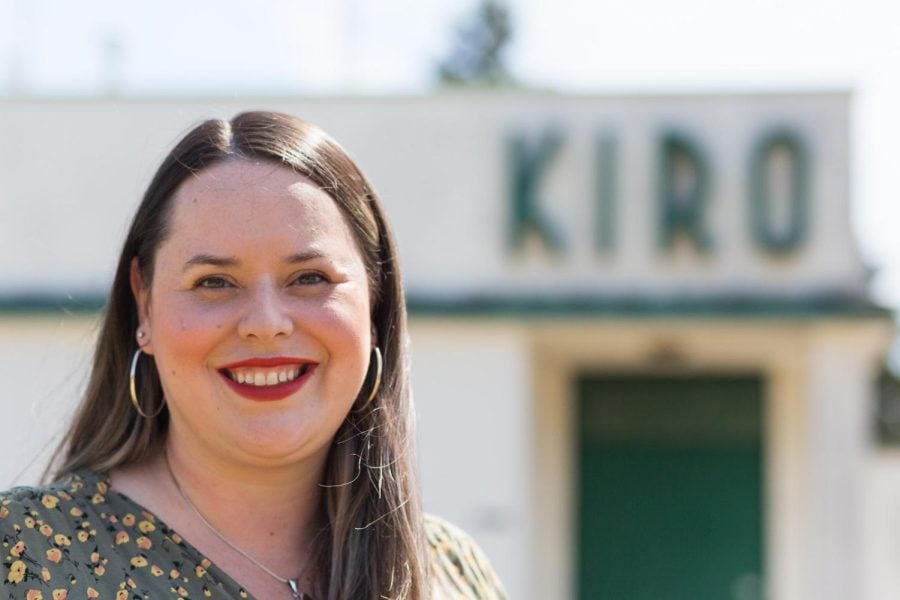Monica De La Torre discusses Chicana broadcasters, community radio
Photo courtesy of Monica De La Torre
Monica De La Torre’s research at Arizona State University focuses on Chicana feminist theory, Latine feminist media studies and radio.
February 14, 2023
Monica De La Torre, professor in the School of Transborder Studies at Arizona State University, says she is empowered by photos of women in front of microphones.
As a guest speaker for Tuesday’s RTVF 398: Film, Media, & Liberation Movements course, De La Torre spoke on Chicana and community radio for the ENERGIES of LIBERATION speaker series.
De La Torre, author of “Feminista Frequencies: Community Building through Radio in the Yakima Valley,” discussed community-based radio’s connections to farm workers and migrant communities.
“A lot of folks are starting to recognize that media is a public right,” De La Torre said at the event. “Access to radio is a public right, and we should all have equal access to the media.”
The Public Broadcasting Act of 1967 — which encouraged the development of public radio — opened doors for new broadcasters during the Chicano movement, women’s movements and the civil rights movement, she said. As radio became more inclusive, she said Chicana women entered the scene.
Chicana women created a feminist base in the media through strong leadership, influential hiring and training, anti-sexist policy implementation and the creation of programming for women by women, according to De La Torre.
“Media, especially back then, was very much male-dominated,” De La Torre said. “It was not something that women — in particular Chicana or immigrant Mexican women — were encouraged to be on the radio. This (was) very unique at the time.”
She also has field experience producing and editing her own content while volunteering for the radio station KPFK.
RTVF Prof. Michael Turcios, who invited De La Torre to speak, said he has followed her work since the earlier stages of her academic career.
Turcios’ course received an enhancement grant from the Alice Kaplan Institute for the Humanities, allowing him to invite speakers like De La Torre. Turcios said he is grateful he can supplement readings and lessons with additional expertise from colleagues.
“I wanted to envision a class where students are engaging in synergetic conversations with themselves and in the seminar but also with the speakers outside,” Turcios said. “The students have been extremely active in their own participation in engaging with the guest speakers who have so much generous knowledge to offer us.”
The course will feature one more speaker this quarter, RADI, a poet and author of chapbook “One Name. All Caps; RADI.”
Communication senior Lulu Madise said she enjoyed Tuesday’s speaker event and would recommend the class to friends.
“I thought it was really cool to learn about the importance of radio and community building because, to be honest, even though my major is radio, TV, film, I didn’t really understand the radio part of it until today,” Madise said.
Email: [email protected]
Twitter: @lexipgoldstein
Related Stories:
— Northwestern professor brings young adult novel to the stage at Steppenwolf
— Chicano band Las Cafeteras discusses history, race
— Q&A: Mike Greenberg, ESPN radio host and Homecoming grand marshal


